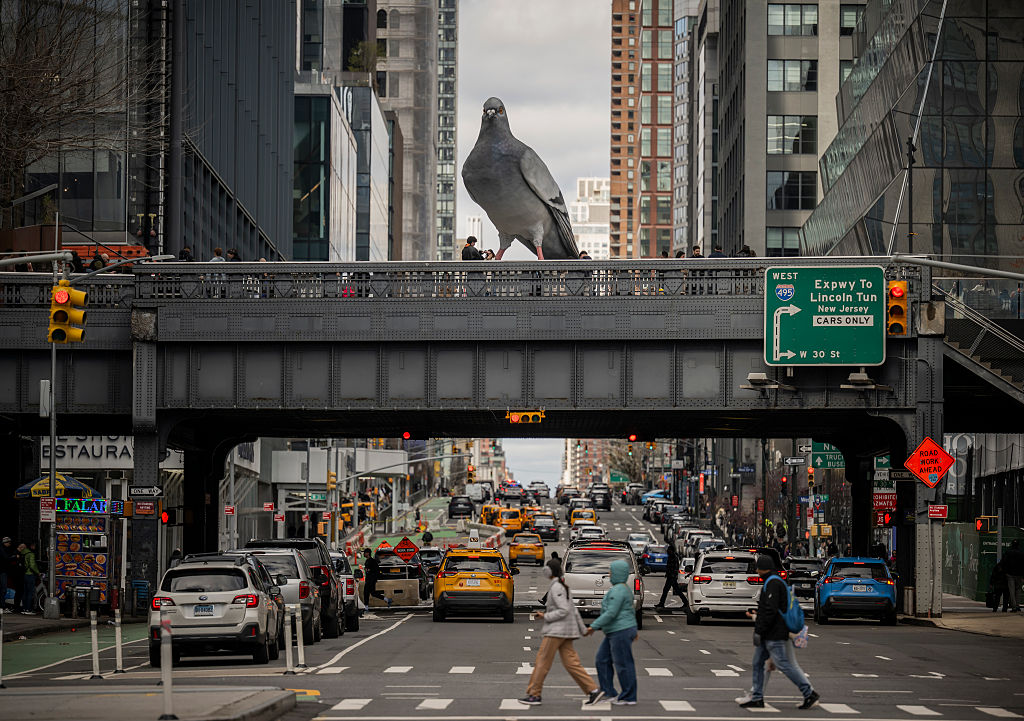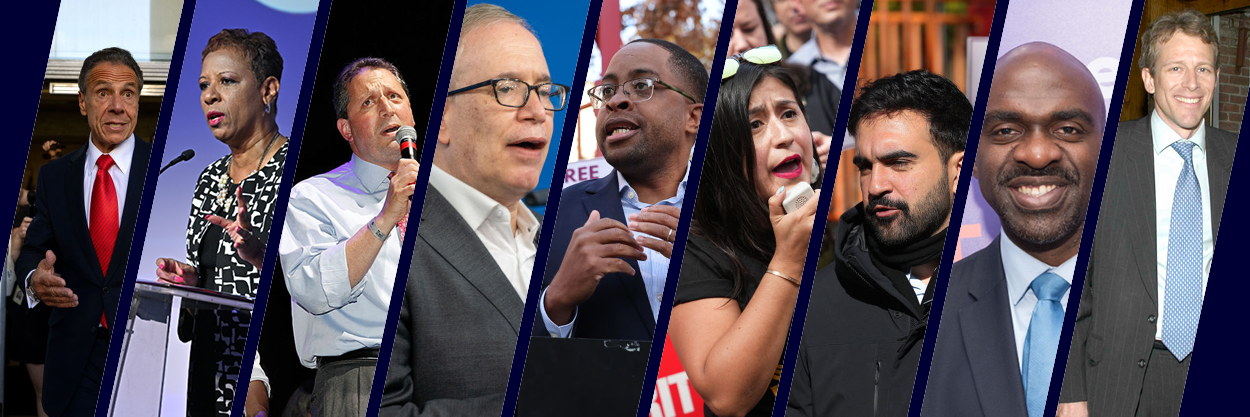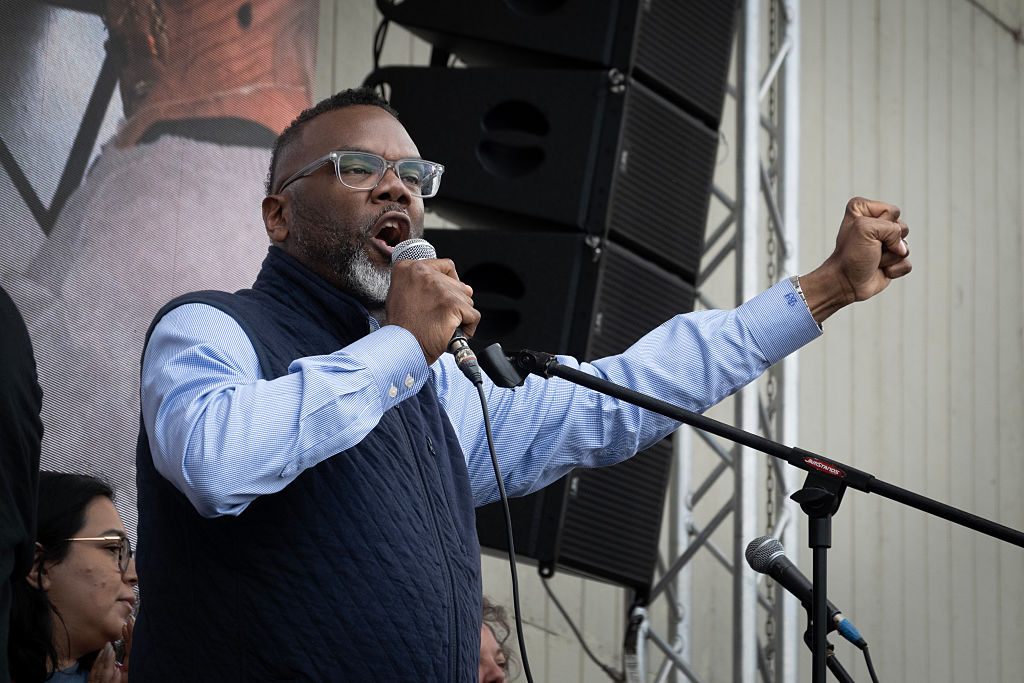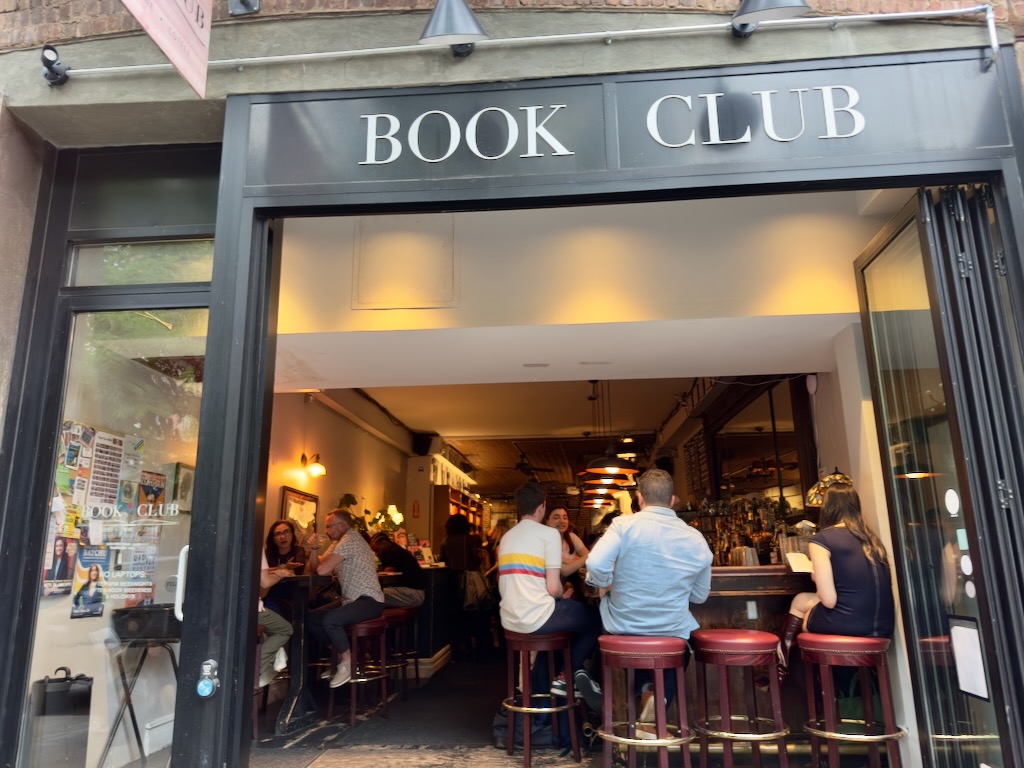|
Forwarded this email? Sign up for free to have it sent directly to your inbox.
|
|
|
A sculpture of a pigeon titled 'Dinosaur' by Iván Argote is on display on The High Line in until Spring 2026. (Photo by Anthony Devlin/Getty Images) |
We're just under four weeks out from the Democratic primaries, just two until early voting starts on June 14, and we're talking about promises, expectations, and lessons to be learned from Chicago. Thanks for reading!
— Liena Zagare
Did someone forward you this email? Sign up to get it in your inbox every Friday. It’s free. I would also love to hear who you are supporting in this mayoral race, and why. Drop me a line at LZagare@manhattan.institute. |
Nearly two-thirds of New York’s Democratic voters say they are worse or no better off than they were last year. But they favor wildly different solutions.
In this week’s Emerson Poll simulation of a ranked-choice runoff, Socialist Queens Assemblyman Zohran Mamdani loses by a mere eight percentage points to former Governor Andrew Cuomo — barely outside the margin for error — after Comptroller Brad Lander is eliminated. Mamdani energizes young progressives with appealing promises—free public transit, citywide rent freezes, public housing bigger than NYCHA—that are bold but unrealistic. Cuomo offers extensive governing experience that comes with ethical baggage, including harassment allegations and questions about transparency during COVID-19. When it comes down to it, voters seem to narrowly favor the latter. New York’s persistent public safety problems, soaring rents, underperforming schools, and aging infrastructure demand more than bold promises. New York needs a mayor also capable of delivering pragmatic solutions without the drama.
Chicago’s recent experience under Mayor Brandon Johnson is instructive. Elected with ambitious progressive policies, Johnson’s administration soon faltered. Mismanagement of basic city functions like budgets and public safety led to a collapse in public trust, reflected by his 14% approval rating after just two years. Those are the consequences of electing leaders who are strong on vision but short on execution, as Ben Krauss points out in Slow Boring.
New York has experienced similar contrasts in leadership, from the disciplined management of the Bloomberg years to the drift and crisis under Mayor Adams. Today’s leading candidates embody these tensions. Mamdani’s proposals resonate emotionally but lack practical feasibility, especially considering the city’s limited authority and uncertainty around budget. Cuomo has proven he can manage political complexity but risks perpetuating dysfunction through polarizing leadership and unresolved controversies.
The contest is far from over, and the more time I spend listening to the candidates, the clearer it becomes that this moment requires practical competence, clear accountability, and realistic plans. Neither frontrunner promises the full package, which is why the rest of the field — including the two comptrollers, Lander and Stringer — still deserve a hard look.
New York’s challenges are immediate and substantial. Ambitious promises alone won’t suffice. |
|
|
From Left: Andrew Cuomo, Adrienne Adams, Brad Lander, Scott Stringer, Zellnor Myrie, Jessica Ramos, Zohran Mamdani, Michael Blake, Whitey Tilson. Photos via Getty Images. |
Close Encounters: According to the latest polling, after Brad Lander is eliminated, Andrew Cuomo wins the race with just 54% to Mamdani's 46%, an 8% difference in a poll with +/-4.3% for the ranked choice simulation. The poll found 47% percent of voters had an unfavorable view of Cuomo, 41% favorable, no such data was available for Mamdani.
Great Expectations: Rep. Alexandria Ocasio-Cortez (AOC) is expected to decide on endorsing in the coming days. The lefty Working Families Party is surveying members on whether to rank the candidates it endorsed: Brad Lander, Zohran Mamdani, Adrienne Adams, and Zellnor Myrie (City & State). The UFT is expected to announce after their leadership election ends this week.
The Jewish Vote: Major Orthodox and influential Jewish voting blocs have yet to endorse a candidate, reflecting caution in a tight primary. Andrew Cuomo leads among Jewish voters but faces lingering resentment over COVID-19 lockdowns. Zohran Mamdani draws progressive Jewish support but intense Orthodox opposition due to his BDS stance, potentially driving turnout against him. Community leaders remain undecided. More in THE CITY.
Mamdani's Numbers: His election proposals have energized his base, but their ambition will almost certainly exceed the ability of any mayor to see them through, The New York Times writes. Despite his incredible skill as a communicator, Mamdani's Albany record is thin. In a meeting with The Daily News Editorial Board, Mamdani struggled to explain how the city would fund his ambitious plans. And if you want a thorough assessment, POLITICO’s Joe Anuta took a deep dive into Mamdani’s plans, a long read.
Cuomo's Beds: As governor, Andrew Cuomo’s 2014 “Transformation Plan” cut state psychiatric beds, overwhelming New York City's shelters, jails, and emergency services. While Cuomo now signals openness to reform, he still defends his past policies. MI's Stephen Eide and Julie Sandorf of Charles H. Revson Foundation argue in The Daily News that, if elected mayor, Cuomo should follow Governor Hochul and Mayor Adams in reversing those cuts and acknowledge his earlier missteps.
The New York Editorial Board—composed of veteran NYC journalists, including MI’s Nicole Gelinas and myself—continues interviewing mayoral candidates and has expanded its focus to include the critical Comptroller and Public Advocate races.
These positions significantly impact city governance: the Public Advocate steps in if the mayor becomes unable to serve, while the Comptroller oversees city pension funds and audits agencies. Last week, we spoke with Manhattan Borough President Mark Levine, currently the leading candidate for Comptroller, about his vision and priorities.
|
|
|
The Next Mayor Should Remember This |
Brighton Beach, Brooklyn. (Photo by: peeterv, iStock / Getty Images Plus) |
From the Giuliani and Bloomberg years to the present, New York City’s approach to governance has shifted dramatically.
Giuliani introduced data-driven policing through CompStat. Bloomberg expanded that model citywide with tools like 311 and the “Geek Squad”—a team of young analysts who used data to improve government efficiency and quality of life. Both mayors prioritized accountability, nonpolitical appointments, and budget discipline through tools like PEG, which required city agencies to find savings every year.
However, over the past three terms—under Bill de Blasio and Eric Adams—those principles have eroded, Steven Malanga, a senior fellow at the Manhattan Institute, writes in the City Journal. De Blasio expanded the city workforce by 35,000 and ballooned budgets without rigorous oversight. Adams inherited the fiscal strain and cut some positions but appointed political loyalists and failed to restore a results-driven culture.
The next mayor must return to a governance model focused on competence, metrics, and measurable outcomes, relearning the lessons the city once mastered, Malanga argues. |
Lincoln Center, IBX, Residential Parking |
Lincoln Center redesign. Rendering by Brooklyn Digital Foundry. |
Landmarks: The proposed $335 million redesign of Lincoln Center's Damrosch Park would transform the neighborhood, The New York Times' architecture critic writes.
Housing: Early data shows developers of 118 buildings representing about 2,600 housing units have signed up for the new 485-x tax break, but all projects have fewer than 100 units, reinforcing concerns that the program’s wage rules may limit housing production. (Crain's)
Education: All leading mayoral candidates except Mamdani plan to leave the SHSAT—the exam used for admission to the city’s specialized high schools—unchanged. (Chalkbeat)
Transportation: Former NYC Transit head Andy Byford has been chosen by President Trump to head up the effort to rebuild Penn Station, according to the White House. (Daily News)
The MTA board approved an ambitious $68 billion capital plan on Wednesday, directing $47.8 billion toward subway and bus upgrades—including new railcars, elevators, and buses—while allocating $2.75 billion to build the Interborough Express linking Brooklyn and Queens. (Crain's)
Parking: Brooklyn Assemblywoman Jo Anne Simon and Manhattan State Sen. Brad Hoylman-Sigal are pushing a bill that would create a pilot program for residential parking permits in a mix of more than a dozen commercial and residential neighborhoods in western Brooklyn, including Brooklyn Heights, Downtown Brooklyn and Fort Greene.
And if another proposed state law goes ahead, the city's fleet of street sweepers will be able to issue automated tickets to alternate side slackers. (Crain's, Daily News)
|
Lessons From Chicago's Brandon Johnson |
Chicago Mayor Brandon Johnson. (Photo by Scott Olson/Getty Images) |
Two years after his election, Chicago Mayor Brandon Johnson's approval rating stands at 14%. Johnson, supported heavily by the powerful Chicago Teachers’ Union and progressive coalitions, misread his mandate, focusing on defunding police, halting charter expansions, and pushing expensive social programs despite severe budget constraints, rising crime, and economic struggles worsened by remote work and pension obligations, Ben Krauss writes in Slow Boring.
Johnson's handling of Chicago's migrant crisis deepened public frustration, especially in Black and Latino communities already facing economic challenges, as his administration mismanaged funds and failed to efficiently coordinate aid, prioritizing migrants over locals. His signature policy, the “Bring Chicago Home” tax, was rejected by voters who doubted his fiscal management. Chicago’s experience underscores a critical lesson for progressive governance in cities nationwide: ambitious goals must be matched by administrative competence and pragmatic budgeting. |
|
|
Cafe Lafayette. Photo by Liena Zagare |
Book Club Bar at 197 East 3rd Street (and Avenue B) in the East Village is a cozy space that seamlessly blends a bookstore with a cocktail and espresso bar, making it a wonderful spot for meeting someone to talk, ideally, about books. It is open daily: Sunday through Wednesday from 9 a.m. to midnight and Thursday through Saturday from 9 a.m. to 1 a.m
|
Thank you for reading to the end! If you’re enjoying this newsletter, please consider recommending it to others. They can sign up here. |
|
|
|
Max Politics podcast is hosted by journalist Ben Max and features in depth interviews with NYC powerbrokers. |
|
|
A weekly newsletter about NYC politics and policy, published by the Manhattan Institute, edited by Liena Zagare. |
|
|
Copyright © 2025 Manhattan Institute, all rights reserved.
|
|
|
|









